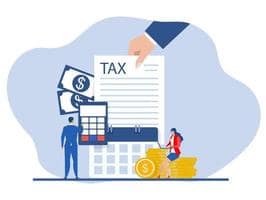COURSE OBJECTIVES
- To provide participants with a working knowledge of the fundamental tax principles and rules that apply to commonly encountered transactions undertaken by companies and individuals – the COMPLIANCE objective.
- To instill an awareness in participants that taxes can often do constitute significant costs to business
- To enable participants to appreciate their wider economic, social, administrative compliance and political contexts within which taxes are imposed- the POLICY objective
- To understand the essentials of international tax with regard to international trade
- To understand the use and importance of tax treaties in cross boarder situations
- To appreciate international tax developments and their potential impacts on international trade flows
- Identify major recent developments in the world trading system, and be able to critically analyze key issues raised by both the current round of two negotiations and by the spread of regional trading arrangements
- Apply partial equilibrium and general equilibrium models in analyzing the economic effects of trade policy instruments
- Distinguish and critically analyze the main arguments for protection and conversely be able to critically evaluate the relevance and realism of arguments for free trade, taking community and the implications for the formulation of trade policy.
- Identify benefits and limitations of how good global markets work.
- Use relevant economic principles to articulate insights into policy issues of relevance to business management world wide
- The ability to use economic analysis to reach a deeper understanding of international trade will be an important formative element for those who intend to develop careers in international business and management
FOCAL POINTS
- Principles of taxation
- Tax reform and its implementation
- Economic impact of tax and subsidies
- Consumption and expenditure taxes
- Corporate tax systems
- International tax harmonization
- Property and real estate taxes
- Risk management of tax compliance
- Transfer pricing and international dispute resolution
- The nature of global business
- Culture and global business
- An overview of world trade. Comparative advantage, the standard trade model
- Government trade policies
- Economies of scale , international factor movements
- Instruments of trade policy, the political economy of trade
- Economic integration and emerging markets
- The instruments of trade policy
- Introduction to computers and computerization
WHO SHOULD BENEFIT
Individuals working professionally in tax policy, tax administration, economics, finance, accounting, management or other related fields. these include:
public and private sector executives, officials of revenue authorities and ministries of finance, professionals in multilateral and regional banks and consultants providing assistance to decision makers in public and private sectors.





Reviews
There are no reviews yet.